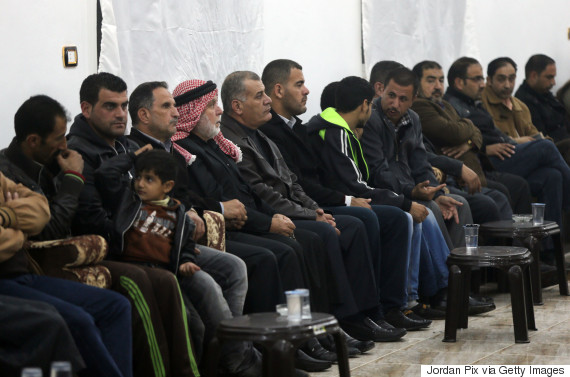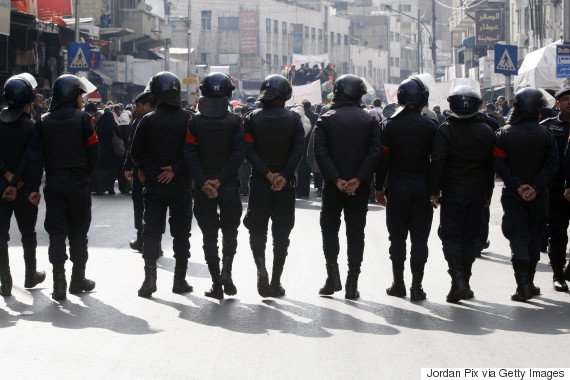
This is an article for Byline, a platform for independent journalism that pays writers through crowdfunding. Daoud Kuttab is currently crowdfunding his column at Byline. You can read the original article here
AMMAN, Jordan -- After every horrific act of violent extremism, we are inundated with right-wing incitement against followers of a major religion and, often from the West, with calls to use the Israeli approach in combating terrorism.
Very little effort is made by pundits to actually dig deeper and think of a more appropriate and effective approach to this disease without compromising human values. A look at the Jordanian model reveals a strategy that has proved to be effective in keeping the country safe without resorting to heavy-handed and wildly restrictive actions that often do more long-term harm.
Jordan's methodology in dealing with the scourge of violent extremism and terror is largely preventative. It stems from the need to have a good idea about some of the extreme members of society and work diligently through different means to contain and weaken them, as well as making the red lines crystal clear.
The Jordanian model is focused. It depends much on human intelligence efforts focused on the individuals who are believed to pose a particular threat rather than on an entire group or community.

Jordan's anti-terrorism strategy is one that refuses to consider any citizens of the country a pariah. Its attitude even towards the most dangerous members of society is never one of delegitimization. In this regard, the Jordanian model avoids collective punishment that profiling will ultimately lead to.
But what that means is that the country, and especially its security and intelligence personnel, has to clock many hours of painstaking search for the bad apple in a community without causing harm to the relationship with the larger group.
While this requires some basic intelligence work, it also requires a genuine effort to come to know the community one is working with.
Jordan's security has its own ways of "knowing" the community, often through tribal and community leaders. And while this system often produces recommendations for certain economic and political improvement and reforms, officials do not ignore such calls; they attempt to address at least a minimum of what is required.
While much the effort is exerted on the prevention side, force can be used when needed. The Jordanian security acts like a surgeon looking for ways to cut the malignant tumor carefully, without touching other body parts and without causing any long-term problems.
The Jordanian leadership looks at even the worst offenders as part of the family, albeit bad ones, and therefore in need of reform rather than of punishment. The same way a father would look at his delinquent son, the Jordanian state looks at potential terrorists as sons gone astray and needing discipline rather than punishment.

This is not to say that the state takes a soft approach to offenders, but the Jordanian approach does include a strong belief in redemption. Pardoning major offenders and instigators against the security of the state has been a hallmark of the country for decades.
The late King Hussein is known to have turned around many of his harshest critics, offering them senior positions in the government. This attempt at co-opting the opposition tends to totally disarm it and render its previous ideological positions a sham.
While this system of co-opting may have worked with secular opponents, it does not work the same way with jihadists. With them, the carrot and stick method is used effectively, weighing prison time against restricted freedoms.
If authorities gauge a change of mind or repentance, they often bypass the normal procedures and allow for clemency, while not totally abandoning the process of monitoring.
The Jordanian approach might be more time consuming and requires much more man hours than what most Western countries are ready to give in fighting violent extremism, but, as has been proved over the years, it is much more effective and much more humane than the more rigid, heavy-handed approach that produces more enemies and does not bode well in the long run.
Earlier on WorldPost:


